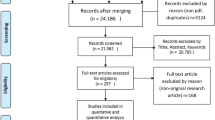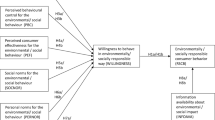Abstract
Objectives
Increasingly, support for water fluoridation has come under attack. We seek an explanation, focusing on the case of Waterloo, Ontario, where a 2010 referendum overturned its water fluoridation program. In particular, we test whether individuals perceive the risks of water fluoridation based not on ‘hard’ scientific evidence but on heuristics and cultural norms.
Methods
A sample of 376 residents in Waterloo were surveyed in June 2012 using random digit dialing. We use factor analysis, OLS regression, as well as t-tests to evaluate a survey experiment to test the credibility hypothesis.
Results
Perceptions of fluoride as a risk are lower among those who perceive fluoride’s benefits (B =.473, p < 0.001) and those whose cultural view is ‘egalitarian’ (B =.156, p < 0.05). The experiment shows a lower level of perception of fluoride’s benefits among respondents who are told that water fluoridation is opposed by a national advocacy group (Group A) compared to those who are told that the government and the World Health Organization support fluoridation (Group B) (t = 1.6547, p < 0.05), as well as compared to the control group (t = 1.891 3, p < 0.05). There is no difference between Group B and the control, possibly because people’s already general support for fluoridation is less prone to change when told that other public organizations also support fluoridation.
Conclusion
Public health officials should take into account cultural norms and perceptions when individuals in a community appear to rise up against water fluoridation, with implications for other public health controversies.
Résumé
Objectifs
On s’attaque de plus en plus à la fluoration de l’eau. Nous cherchonsune explication, à partir du cas de Waterloo, Ontario, où un référendum a renversé le programme de fluoration de son eau en 2010. Plus particulièrement, nous tentons de savoir si les gens perçoivent les risques de la fluoration de l’eau non pas selon des „faits” scientifiques, mais selon des normes heuristiques et culturelles.
Méthodes
On a étudié un échantillon aléatoire de 376 résidants de Waterloo en juin 2012 au moyen de la composition téléphonique aléatoire. Nous avons recours à l’analyse factorielle, à la régression par les moindres carrés ordinaires (MCO) et à des tests pour évaluer une expérience de sondage afin de tester l’hypothèse de crédibilité.
Résultats
La perception que le fluor constitue un risque est plus faible chez ceux qui connaissent ses avantages (B = -.473, p < 0,001 ) et ceux dont la perspective culturelle est égalitaire (B = -.156, p < 0,05). L’expérience montre une perception moins favorable des avantages du fluor chez les répondants à qui on affirme qu’un groupe de pression national s’oppose à la fluoration de l’eau (groupe A) comparée à ceux à qui on affirme que le gouvernement et l’Organisation mondiale de la santé appuient la fluoration de l’eau (groupe B) (t = -1,6547, p < 0,05), ainsi qu’au groupe témoin (t = -1,891 3, p < 0,05). Il n’y a aucune différence entre le groupe B et le groupe témoin, peut-être parce que les gens qui appuient déjà généralement la fluoration sont moins susceptibles de changer d’avis lorsqu’on leur dit que d’autres organismes publics l’appuient également.
Conclusion
Les représentants en santé publique doivent tenir compte des normes culturelles et des perceptions lorsque des membres d’une collectivité s’opposent publiquement à la fluoration avec les autres controverses possibles en santé publique.
Similar content being viewed by others
References
McLaren L, McIntyre ML. Drinking Water Fluoridation in Canada: Review and Synthesis of Published Literature. Report commissioned by the Public Health Agency of Canada, Ottawa, ON, 2011.
Quiñonez CR, Locker D. Public opinions on community water fluoridation. Can J Public Health 2009;100(2):96–100. PMID: 19839282.
Mueller J. Fluoridation attitude change. Health Educ J 1969;28(1):29. doi: 10. 1177/001789696902800105.
Slovic P, Fischhoff B, Lichtenstein S. Why study risk perception? Risk Anal 1982;2(2):83–93.
Slovic P, Finucane M, Peters E, MacGregor D. The affect heuristic. In: Gilovich T, Kahneman D, Griffin D (Ed.), Heuristics and Biases: The Psychology of Intuitive Judgment. Cambridge, UK: Cambridge University Press, 2002; p. 857.
Gardner D. Risk: The Science and Politics of Fear. Toronto, ON: McLelland and Stewart, 2009.
Ropeik D. How Risky Is It, Really? New York, NY: McGraw-Hill Professional, 2010.
Druckman JN. On the limits of framing effects: Who can frame? J Polit 2001;63(4):1041–66. doi: 10.1111/0022-3816.00100.
Hovland C, Weiss W. The influence of source credibility on communication effectiveness. Public Opin Q 1951;15(4):635–50. doi: 10.1086/266350.
Gastil J, Braman D, Kalian D, Slovic P. The “Wildavsky Heuristic”: The Cultural Orientation of Mass Political Opinion. Yale Law School, Public Law Working Paper No. 107, 2005. Available at: https://doi.org/ssrn.com/abstract=834264 (Accessed April 9, 2014).
Kalian DM, Braman D, Slovic P, Gastil J, Cohen G. Cultural cognition of the risks and benefits of nanotechnology. Nat Nanotechnol 2009;4:87–90. PMID: 19197308. doi: 10.1038/nnano.2008.341.
Kahan D, Braman D, Gastil J, Slovic P, Mertz C. Culture and identity protective cognition: Explaining the white male effect in risk perception. J Empir Leg Stud 2007;4(3):465–505. doi: 10.HH/j.1740-1461.2007.00097.x.
Gastil J, Braman D, Kahan D, Slovic P. The cultural orientation of mass political opinion. PS Polit Sci Polit 2011;44(4):711–14. doi: 10.1017/S1049096511001326.
Kahan DM, Braman D, Cohen GL, Gastil J, Slovic P. Who fears the HPV vaccine, who doesn’t, and why? An experimental study of the mechanisms of cultural cognition. Law Hum Behav 2010;34(6):501–16. PMID: 20076997. doi: 10.1007/S10979-009-9201-0.
Douglas M, Wildavsky A. Risk and Culture: An Essay on the Selection of Technical and Environmental Dangers. Berkeley and Los Angeles, CA University of California Press, 1983.
Douglas M. Four cultures: The evolution of a parsimonious model. GeoJournal 1999;47(3):411–15. doi: 10.1023/A:1007008025151.
Thompson M, Ellis R, Wildavsky A. Cultural Theory. Boulder, CO: Westview Press, 1990.
Carstairs C, Elder R. Expertise, health, and popular opinion: Debating water fluoridation, 1945–80. Can Hist Rev 2008;89(3):345–71. doi: 10.3138/chr.89.3.345.
Griffin M, Shickle D, Moran N European citizens’ opinions on water fluoridation. Community Dent Oral Epidemiol 2008;36(2):95–102. PMID: 18333872. doi: 10.1111/j.1600-0528.2007.00373.x.
Linn E. Effect of community leaders and organizations on public attitudes toward fluoridation. J Public Health Dent 1969;29(2):108–17. PMID: 5255923. doi:10.1111/j.l752-7325.1969.tb02815.x.
Newbrun E. The fluoridation war: A scientific dispute or a religious argument? J Public Health Dent 1996;56(5):246–52. PMID: 9034969. doi: 10.1111/j.1752-7325.1996.tb02447.x.
O’Shea R, Kegeles S. An analysis of anti-fluoridation letters. J Health Hum Behav 1963;4(2):135–40. doi: 10.2307/2948886.
Fournier P. The uninformed Canadian voter. In: Everitt J, O’Neill B (Eds.), Citizen Politics: Research and Theory in Canadian Political Behaviour. Don Mills, ON: Oxford University Press Canada, 2002; pp. 92–109.
Council of Canadians. The Council of Canadians is opposed to the fluoridation of drinking water: We are concerned by the health and environmental impacts associated with it, 2011. Available at: https://doi.org/cof-cof.ca/2011/11/the-council-of-canadians-is-opposed-to-the-fluoridation-of-drinking-water-we-are-concerned-by-the-health-and-environmental-impacts-associated-with-it (Accessed February 9, 2012).
Goldacre B. Bad Pharma: How Drug Companies Mislead Doctors and Harm Patients. London, UK: Fourth Estate, 2013.
Kahlenborn C. Breast cancer: Its link to abortion and the birth control pill. One More Soul, 2000. Available at: https://doi.org/onemoresoul.com/catalog/breast-cancer-its-link-to-abortion-and-the-birth-control-pill-p237.html (Accessed April 9, 2014).
Weiner R. Bachmann claims HPV vaccine might cause “mental retardation”. Washington Post, Sept. 13, 2011. Available at: https://doi.org/www.washingtonpost.com/blogs/the-fix/post/michele-bachmann-continues-perry-attack-claims-hpv-vaccine-might-cause-mental-retardation/20H/09/13/gIQAbJBcPK_blog.html (Accessed April 9, 2014).
Wildavsky A. Choosing preferences by constructing institutions: A cultural theory of preference formation. Am Polit Sci Rev 1987;81(1):3. doi: 10.2307/1960776.
Author information
Authors and Affiliations
Corresponding author
Additional information
Acknowledgements: We thank Wilfrid Laurier University’s Office of Research Services for financial support.
Conflict of Interest: None to declare.
Rights and permissions
About this article
Cite this article
Perrella, A.M.L., Kiss, S.J. Risk perception, psychological heuristics and the water fluoridation controversy. Can J Public Health 106, e197–e203 (2015). https://doi.org/10.17269/cjph.106.4828
Received:
Accepted:
Published:
Issue Date:
DOI: https://doi.org/10.17269/cjph.106.4828




